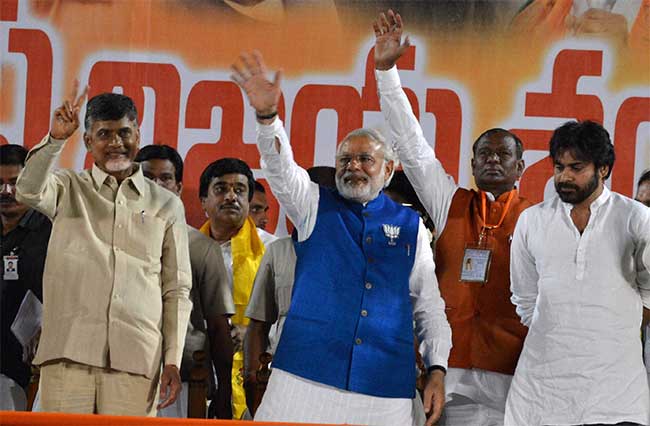As the Indian retail market gears up for unprecedented growth, the upcoming budgets (mid-term budget and then full budget later this year) are expected to provide a push to unlock its full potential. The retail industry is expected to reach US$1.1 trillion by 2027 and US$2 trillion by 2032, with a compound annual growth rate of 25%. As the industry remains dynamic, contributing more than 10% to the country’s GDP and employing approximately 8%, the government is expected to introduce measures aimed at promoting the long-term growth of this key industry.
Last year’s budget announcement was also positive and forward-looking, focusing on growth in rural India, which is a major base for the consumer and retail sectors. Although the budget announcement was implemented to boost consumption growth in the sector, consumer spending has been hit over the past year due to inflation, erratic rainfall and a slowdown in the rural economy.
To address these challenges, the upcoming budget has huge implications for Indian consumers and the retail industry. The department wants to take steps to boost disposable income and rural demand, such as tax cuts for lower income brackets, increased investments in farm infrastructure and rationalization of GST rates on essential commodities.
Additionally, the industry expects support for omni-channel retailing through infrastructure development and business-friendly reforms. Focus on domestic manufacturing and consumer goods PLI scheme may further enhance the sector’s resilience against global headwinds. Overall, the industry is keen for budgets that prioritize consumer sentiment and facilitate continued growth for both online and offline retailers.
Here are some expectations and key areas to focus on in your budget:
Simplifying the Indian retail landscape: A cohesive national retail policy is awaited, especially in the upcoming budget. The policy aims to enhance the global competitiveness and sustainability of the industry, paving the way for smoother business operations. It will not only boost overall retail growth but will also unlock access to affordable credit while driving digitization and modernization within the industry. Additionally, the policy also promises to improve infrastructure across the supply chain, enhance skill development and workforce productivity, and establish a robust grievance redressal mechanism for the industry.
Shaping the digital future: Since technology is central to the operations of many retail and e-commerce companies, governments should explore incentives for businesses to engage in digital technology innovation. Tax incentives could encourage greater use of artificial intelligence/machine learning and blockchain technology.
Basic tariff rationalization: To become ‘Aatmanirbhar Bharat’ and promote growth in domestic manufacturing, stakeholders are expected to rationalize basic customs duties on certain imported products, such as key components used in manufacturing high-end mobile phones and consumer durables. The continued exemption from basic customs duty (BCD) on key imported components such as CRGO steel is crucial to maintaining cost-efficiency in the Indian electrical equipment industry.
Expanding incentives for manufacturing: In order to promote India’s manufacturing industry, the government implemented a 15% preferential tax rate in October 2019 for new companies engaged in the manufacturing or production of consumer goods and other goods. This reward is valid until March 2024. It is proposed to extend the deadline by another year, from March 31, 2024 to March 31, 2025.
Clarification of welfare tax relief (section 194R) and payment of charges for imported goods to non-residents: A significant economic presence (SEP) is created in India when a non-resident sells goods or services exceeding prescribed threshold limits to persons in India. After creating a SEP, the income of the non-resident seller needs to be taxed in India, and the importer needs to deduct TDS when remitting the money. These regulations are broad and can even cover normal imports of goods. Since many importers are engaged in the consumer goods industry, it is recommended that the government amend the SEP clauses to completely exclude normally imported goods from its jurisdiction. If this is not possible, attribution rules should be prescribed to enable the importer to calculate the income of the non-resident seller and deduct TDS accordingly.
Ensure disposable income: Rationalization of the GST and income tax rate structure has long been one of the most prominent industry demands. Any incentives from the Finance Minister for rationalization of GST and personal tax rates will give consumers higher disposable income and boost consumption which has been slowing down. Higher disbursements from rural support schemes such as MGNREGA/Minimum Support Price for Agricultural Produce Purchase will also help increase rural demand.
Budget for retail renaissance: For the independent retail industry across India, the upcoming budget is expected to help provide financing options. The dedicated funds available through the improved trader financing scheme in partnership with SIDBI will be a strong catalyst and a key requirement for Indian retailers.
The synergy of traditional and digital retail, coupled with strategic budgetary measures, has the potential to propel India to the forefront of the global retail landscape. The U.S. retail economy is expected to reach $2 trillion by 2032, depending on the right mix of policies, investments and support to foster a prosperous and inclusive retail ecosystem.
(Naveen Malpani is a partner and consumer industry leader at Grant Thornton Bharat, and Akhil Chanda is a tax partner)
Follow us on Google news ,Twitter , and Join Whatsapp Group of thelocalreport.in
















